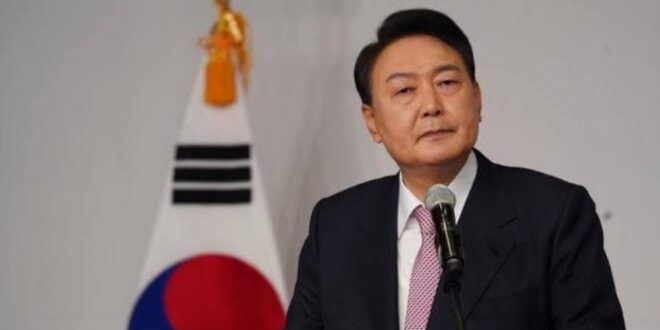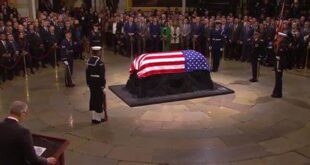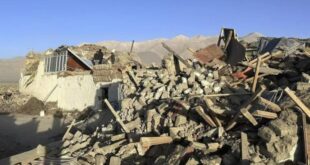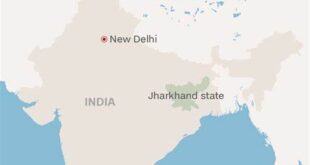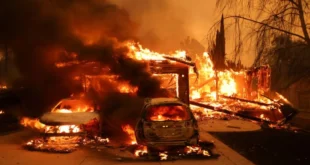The former star prosecutor has refused questioning three times over a bungled martial law decree last month which plunged South Korea into its worst political crisis in decades.
South Korean anti-graft investigators were holding on Tuesday for a new court-ordered arrest warrant for impeached President Yoon Suk Yeol, whose failed martial law bid threw the country into turmoil.
The former star prosecutor has refused questioning three times over a bungled martial law decree last month which plunged South Korea into its worst political crisis in decades.
As anti-graft officials seek a new warrant from the same court that issued the first order, Yoon remains holed up in his residence surrounded by hundreds of guards preventing his detention.
“The Joint Investigation Headquarters today refiled a warrant with the Seoul Western District Court to extend the arrest warrant for defendant Yoon,” the Corruption Investigation Office (CIO) said in a statement late Monday.
“Details regarding the validity period cannot be disclosed”, the CIO added after the initial seven-day warrant expired.
If investigators are able to detain Yoon, he would become the first sitting president in South Korean history to be arrested.
There was no comment by investigators or the Seoul court on the new warrant being approved by Tuesday afternoon.
However, CIO deputy director Lee Jae-seung told reporters earlier on Tuesday that the likelihood the court would not grant an extension was “very low”.
Yoon is being investigated on charges of insurrection and, if formally arrested and convicted, faces prison or, at worst, the death penalty.
His lawyers repeatedly said the initial warrant was “unlawful”, pledging to take further legal action against it.
Yoon’s lawyers have argued the CIO lacks the authority to investigate because insurrection is not included in the list of offences it can probe.
But the likelihood for the reissued warrant to be accepted was “quite high”, said Yun Bok-Nam, president of Lawyers for a Democratic Society, who is not involved in the investigation.
But it may take longer than expected for the warrant to be issued again.
“In the previous instance, it took quite a long time — almost a day and a half,” Yun told AFP.
– Protest lull –
The CIO is a relatively new force — nearly four years old — with fewer than 100 staff who are yet to prosecute a single case.
“Naturally, they have no prior experience with arrests, let alone something as significant as arresting the president,” Yun said.
“The cooperation of the police is essential”, he added, through the Joint Investigation Headquarters umbrella under which both forces are currently working together.
The country’s opposition Democratic Party said Monday it would submit a legal complaint against acting president Choi Sang-mok for “dereliction of duty”, after it asked him to intervene in the case and he did not.
South Korea’s Constitutional Court has slated January 14 for the start of Yoon’s impeachment trial, which would proceed in his absence if he does not attend.
Local media reported the suspended leader is likely to appear on the trial’s opening day, but Yoon’s lawyer told AFP his appearance on that date was still “undecided”.
The court has up to 180 days to determine whether to dismiss Yoon as president or restore his powers.
Former presidents Roh Moo-hyun and Park Geun-hye never appeared for their impeachment trials in 2004 and 2016-2017 respectively.
Investigators struggled to arrest Yoon because of a sizeable force of guards massed at his home to protect him.
His presidential security service refused to budge during a tense six-hour standoff at his residence on Friday, forcing investigators into a U-turn.
Many of his supporters have also camped outside his residence despite freezing weather.
However, with no warrant active on Tuesday, the scene was calmer on the streets outside, with protests appearing to lull before any further attempt to arrest Yoon.
 3rd Eye Africa TV Illuminating Truth, Shaping Perspectives.
3rd Eye Africa TV Illuminating Truth, Shaping Perspectives.

